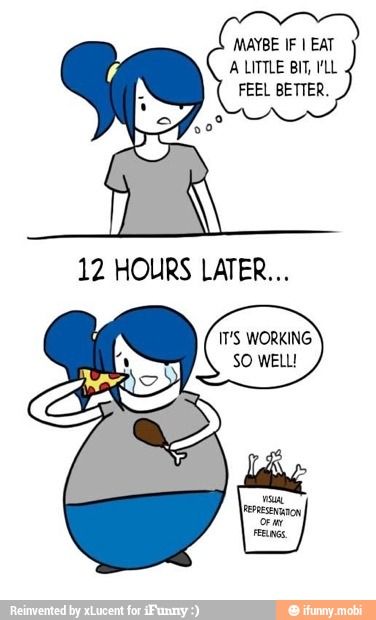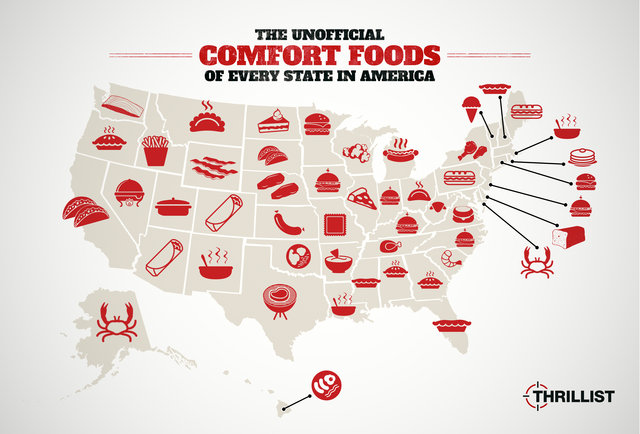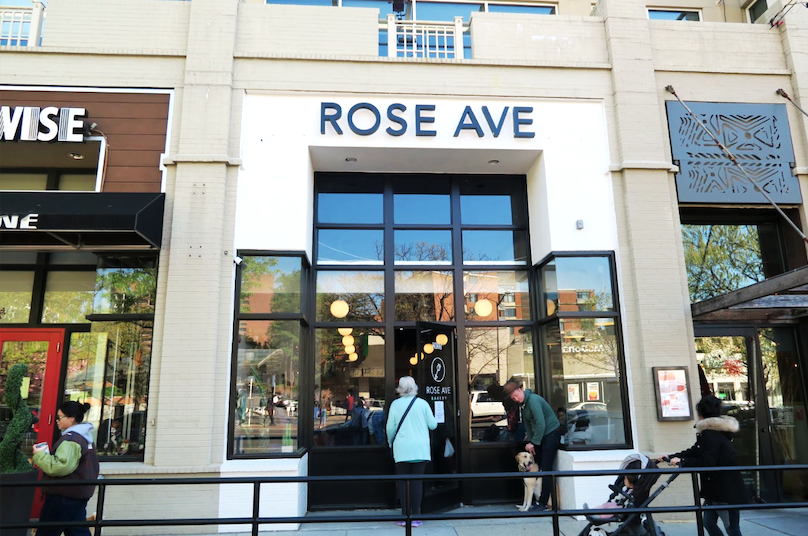After a long day at school, especially if I’ve had 6th period, I’ll get home and look around my kitchen for something to eat. I’ll see our fruit basket, with perfectly good apples, tangerines, and oranges. There’s always yogurt in the refrigerator. The cupboards are stocked with nuts and dried fruit, and I’ve been telling myself over and over that I need to start eating healthy. But I find myself reaching to open a pack of crackers instead of almonds, and cheese instead of greek yogurt, or pulling out a pack of cookies and ignoring the fresh fruit.

Rationally, I know that I’ve made the wrong decision, but I’m happy with my choice anyway. Maybe I’ll regret it the next day, swear to eat healthier yet again, and then eat a bowl of ice cream while watching Netflix and trying to forget about the lastest IA. Does this scenario sound familiar? If the answer is yes, you are stressed, and your body is telling you to eat comfort food. But why? Shouldn’t you crave the foods that are healthy for you and will make you feel better in the long run? The answer is no, and I’ll explain why.
In order to understand how stress affects what you eat, first you need to know what happens to your body when you’re stressed. According to Psychology Today, when you feel stressed, your body thinks that you’re in immediate, substantial danger. Cortisol levels, a hormone that makes you feel attentive and alert, increase and relay messages throughout your body stimulating a sort of “fight or flight” instinct. You’re reacting to imminent danger, and you’re blood vessels constrict and divert blood flow from less important processes, such as digestion, to the muscles to generate faster reflexes. This metabolism shift allows energy to be quickly accessible to the muscles, so that you can react to the threatening situation.
This stress response naturally turns itself off. When cortisol reaches the brain, it acts as signal to cease production of the hormone. It’s an ingenious, efficient system – there’s just one flaw. Our bodies are clearly adapted to different type of stress then what we experience today. We no longer have to run from predators or fight off other
s in contest for the resources we need to survive. The new threats are deadlines. We now fight to be the smartest, not the fastest, and unlike the immediate self-protection in the past, our newest pressures are extended over long stretches of time and require constant vigilance.
According to Research from University of California at San Francisco (UCSF), during this new, chronic stress the system no longer turns itself off, and cortisol production keeps increasing, bringing anxiety, vigilance, and hyperalertness with it. Our bodies try to figure out a way to stop this chronic stress, as it is not designed to cope with it.
 Photo Credit to Thrillist: https://www.thrillist.com/eat/nation/comfort-foods-of-every-state-in-america-thrillist
Photo Credit to Thrillist: https://www.thrillist.com/eat/nation/comfort-foods-of-every-state-in-america-thrillist
This brings us to food. Long-term anxiety depletes your energy reserves, so your body starts to panic, as low energy means lower chances of survival. Fatty and sugary foods are an easy solution, as they help your body quickly build up energy reserves. Stress levels cause energy to move around rapidly and usher calories to the abdomen, where they are deposited as fat close to the liver that can be quickly transferred into energy.
These fat deposits are a comfort. They send a metabolic signal to your brain telling it that it’s alright to shut does thestress response. Eating seems to decrease anxiety because your body is telling your brain “It’s OK now, don’t worry. You’re fueled with high energy food, there is no threat to your survival”.
A key player in research around stress and food at the UCSF, Mary Dallman, explains that “the discovery of the metabolic signal from fat stores is the result of 30 years of research on the stress system. The details were worked out in rats, but the findings, reported in the Proceedings of the National Academy of Sciences, resoundingly apply to humans.”
Comfort food isn’t just your favorite meal from childhood or the best pizza in town, it’s biologically a legitimate source of subconscious comfort to your brain. That’s why you’ll always crave pizza over salad or cake over fresh fruit when you’re stressed.
You might be thinking: “stress eating has to be unavoidable if it’s a subconscious instinct” and “I’m going to gain so much weight because of the IB”. Don’t panic yet. First of all, like with all other hormones, how much cortisol a body produces varies slightly from person to person. According to Harvard Medical School, if you don’t produce as much cortisol, you won’t be as susceptible to stress eating.
If you’re not as lucky, and your cortisol production levels are high, there are other ways to respond to stress and to prevent stress in the first place. Ways of shutting down chronic stress include: exercise, yoga, mediation, or doing an enjoyable hobby. I know you’ve heard probably heard about these coping mechanisms dozens of times, but they really are helpful. Success Magazine explains that if practiced regularly they might even reduce your perception of stress, so you’ll be calmer when a stressful situation occurs.
Another way to reduce your perception of stress is to eat well – before you’re stressed enough for comfort food cravings to kick in. Depending on the foods you eat, you can build up your mental health. For example, milk, yogurt, salmon chicken, oatmeal, and chickpeas, are all high is vitamin B, which is responsible for the anxiety-easing and pleasure-inducing neurotransmitters (chemicals released in your brain) serotonin and dopamine, and can help reduce stress.

Foods high in omega-3s can help reduce inflammation, which is often triggered by stress, and deficiency can lead to depression and mood swings. These include salmon, oysters, halibut (seafood in general), and nuts such as walnuts.
Overproduction of cortisol can lead to increased storage of fat, as stated above, and occasionally to brain cell damage. Vitamin C helps prevent this damage and keeps immune and digestive systems healthy. Oranges, red and green peppers, broccoli, and strawberries are all high in Vitamin C.
So the moral of the story is: eat lots of oranges and nuts, exercise, and relax from time to time. Hopefully you’ll start to stress less, but if you’re really overwhelmed don’t blame yourself for stress eating. Eating a few pieces of pizza now and then won’t kill you, and you’ll feel better afterwards, because you’re body is literally comforting your brain.


































































